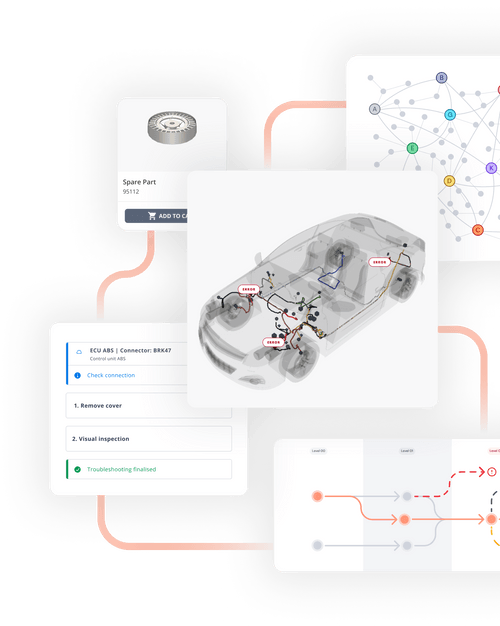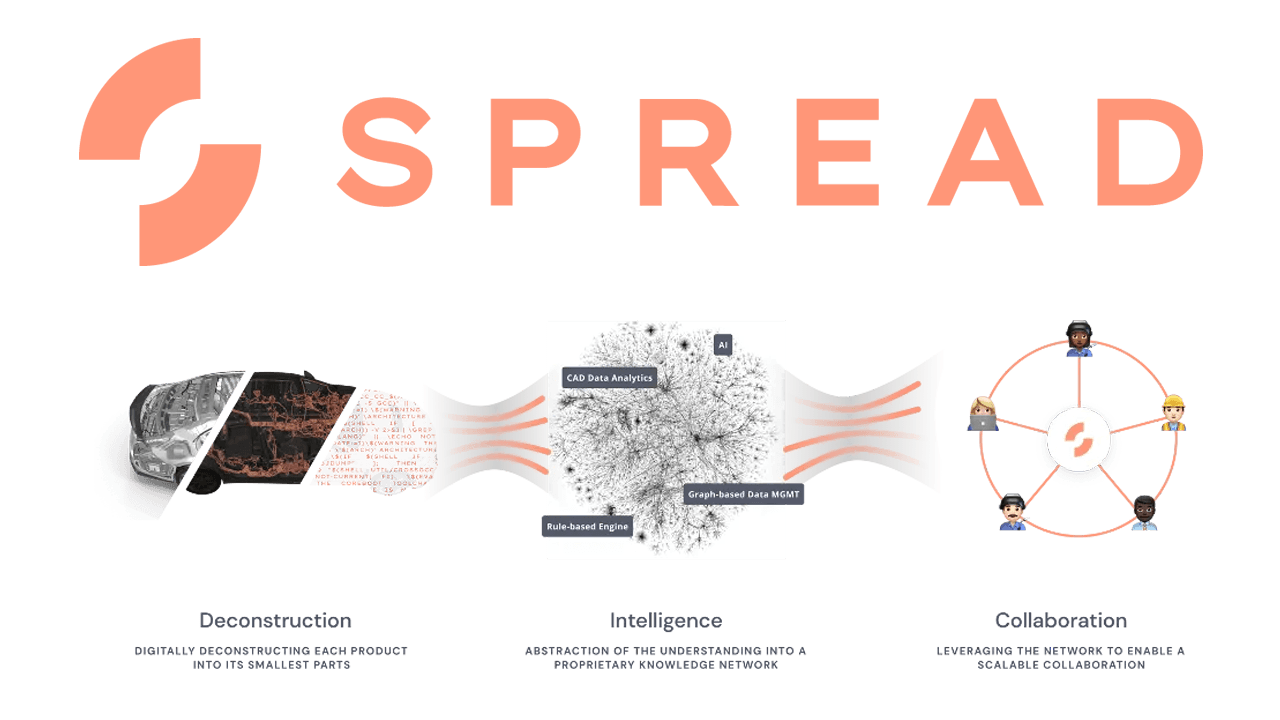Berlin-based Spread has raised $16 million in a Series A funding round. Since its founding in 2019, Spread’s bread and butter has been the automotive sector, however, the new capital will be used to further develop the platform’s capabilities as it expands into new industries.
Spread’s $16 million Series A round was led by HV Capital with existing investor Cavalry Ventures participating. The round also attracted angel investors including Figma co-founder and CEO Dylan Field, the founders of Sennder, and Summit Partners founder Walter Kortschak.
 There’s no denying the fact that today’s cars, aircraft, and heavy machines are incredibly complex machines. With the thousands of moving parts and interfaces involved in their development and construction, you’d think that some form of standardisation of what works with what would exist. But alas.
There’s no denying the fact that today’s cars, aircraft, and heavy machines are incredibly complex machines. With the thousands of moving parts and interfaces involved in their development and construction, you’d think that some form of standardisation of what works with what would exist. But alas.
“We saw that engineers spend 70% of their time manually searching for product information. They need this information to work on their piece of the puzzle and make sure it fits into the bigger picture,” explained Spread managing director and co-founder Robert Göbel. “If you consider the huge effort that goes into manually building this contextual understanding, it is remarkable that engineers can make such innovative and complex products work.”
Remarkable indeed, but still, not an insurmountable task, as engineering teams have clearly been accomplishing their work, often through navigating a labyrinth of siloed and/or challenging at best to access information.
So instead of bringing the horses to the water, it’s simply making all the water available to the horses in one single trough.
“We connect existing tools and systems instead of replacing them. This is a huge advantage for engineering teams creating complex products across different departments and domains because they can integrate our technology much faster and quickly achieve time to value. Therefore, every insight they uncover has a huge potential when scaled to the whole product line,” commented Spread MD and co-founder Philipp Noll.
Counting Mercedes, VW, and Infineon amongst its client roster, one specific real-world example Spread highlights is that its service was able to identify that engineers could reduce the weight of a vehicle’s wiring harness by 1 kg without affecting safety or functionality. When factored into the context that this manufacturer produced roughly 80 million vehicles in 2021, scaling this potential weight reduction would result in a reduction of 2.73 billion kg of CO2 per year.
Having backed the company at the seed stage and now following on, Cavalry Ventures’ Partner Martin Janicki commented, “Complex physical products need to get smarter and more sustainable. The current software landscape is a major bottleneck for embracing the future. Spread combines existing data across engineering domains to create unprecedented insights that drive magnitudes of improvement across the whole product lifecycle.”



Would you like to write the first comment?
Login to post comments